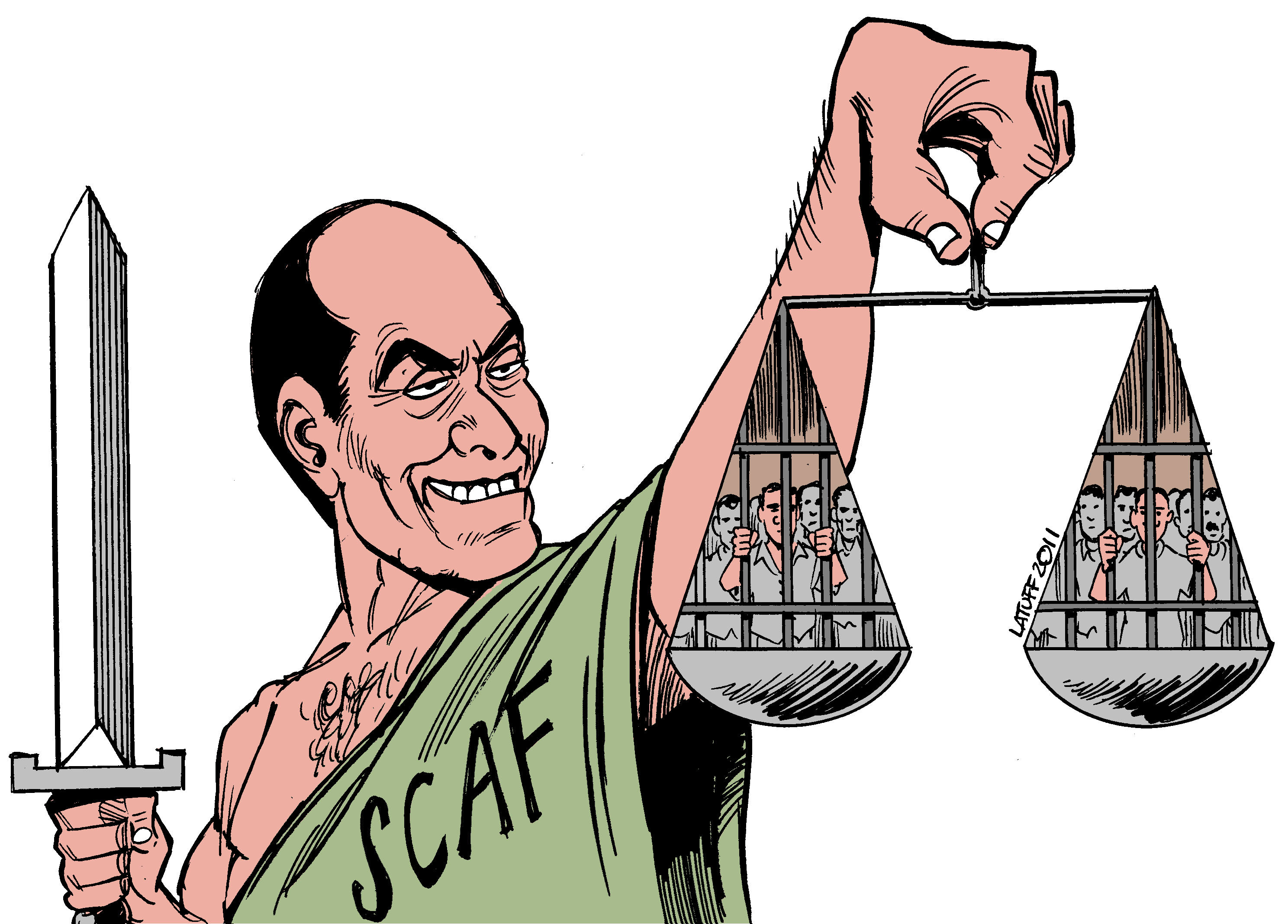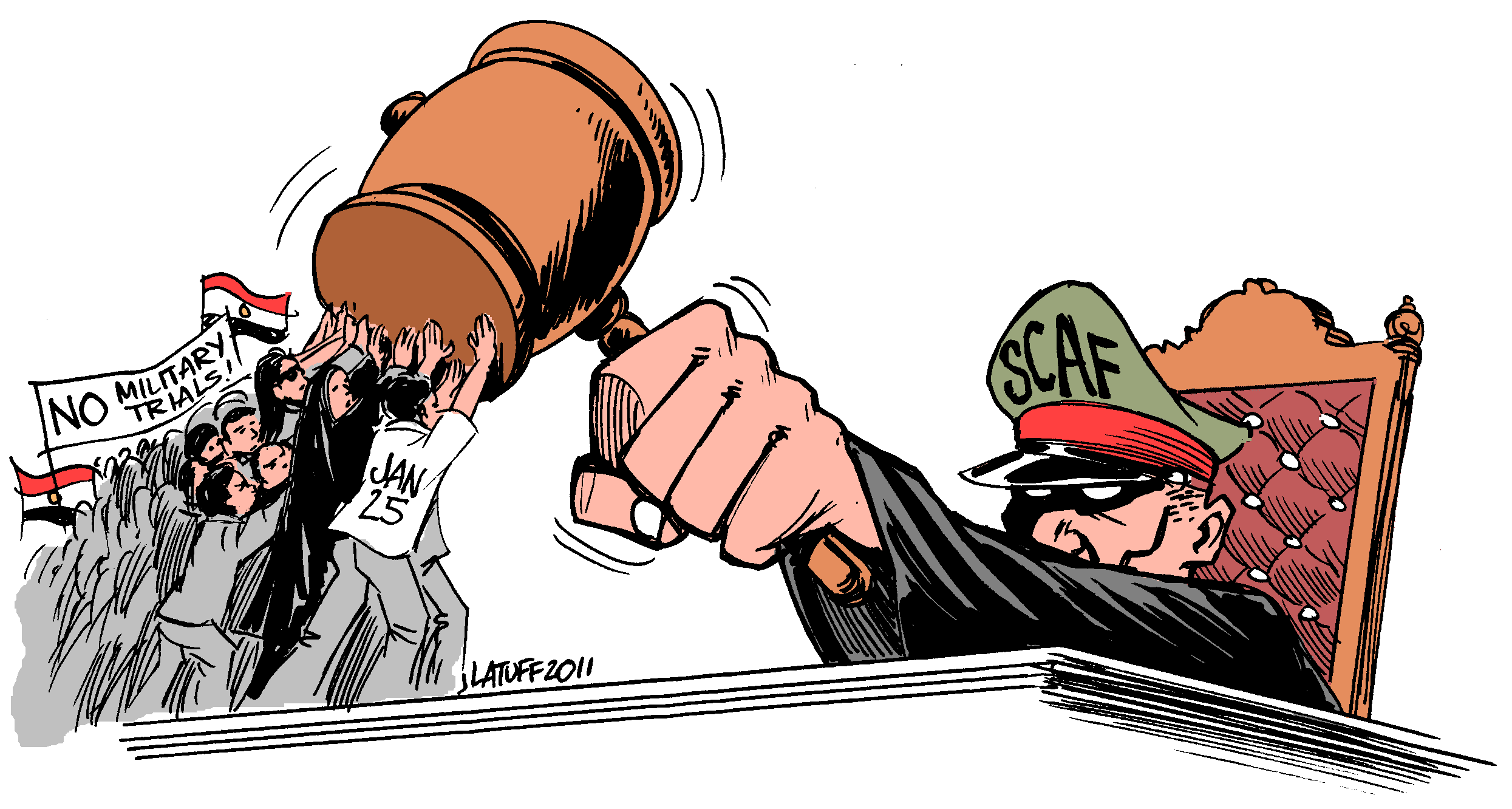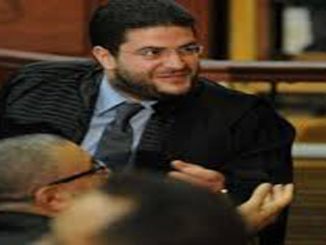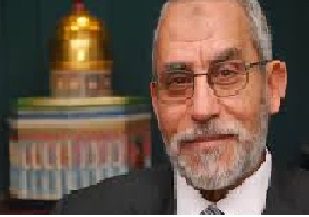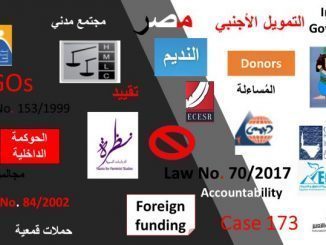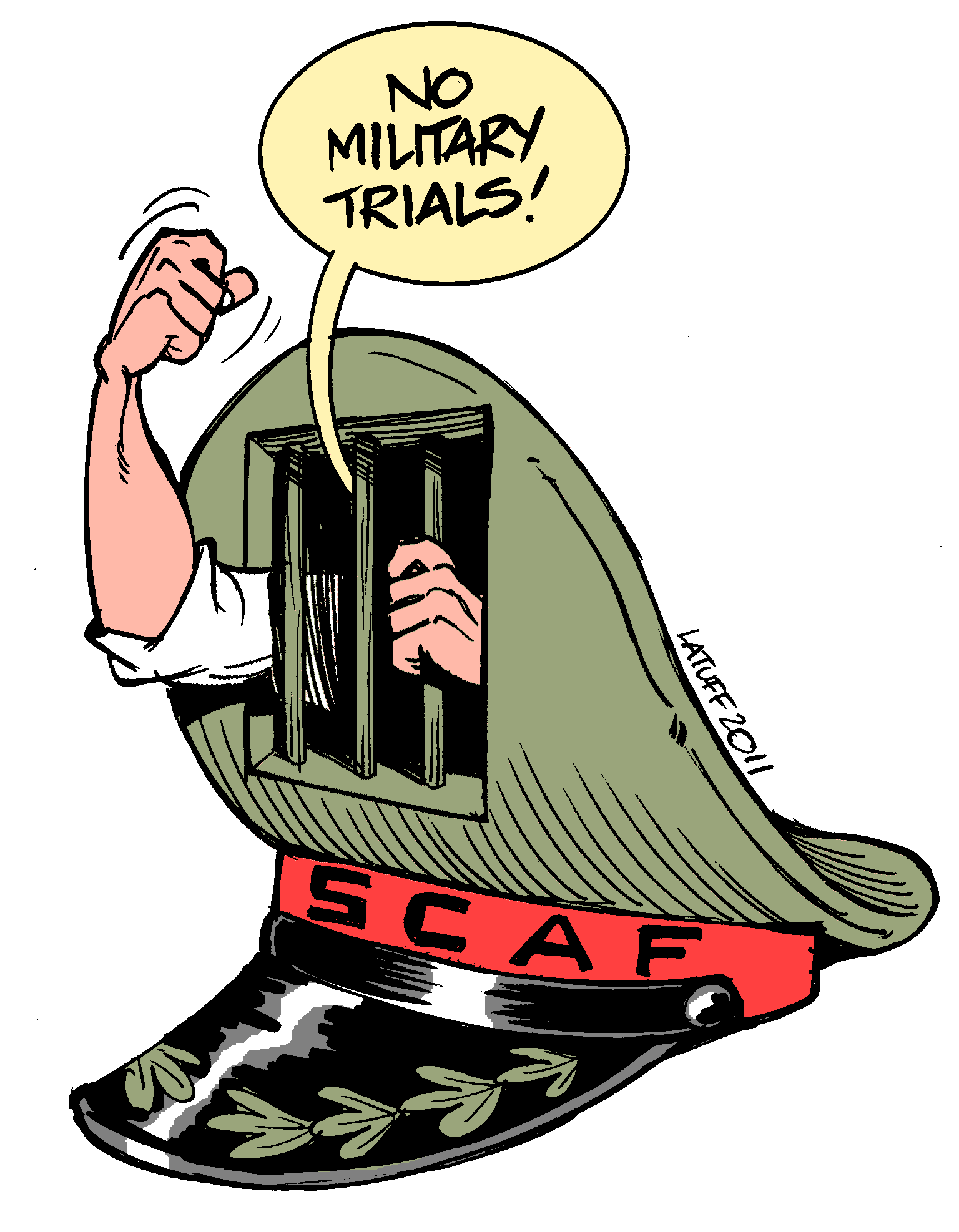
A military court in Egypt sentenced 187 alleged Muslim Brotherhood members and supporters to life in prison.
Al-Ahram, a state-owned newspaper, stated that the verdict was based on multiple charges “including an alleged assault on the Maghagha (in al-Minya) police station after the dispersal of the pro-Morsi supporters’ sit-ins in Rabaa and Nahda squares in August 2013.”
Rabaa and Al-Nahda sit-ins were organized in support of President Mohamed Morsi, the first democratically elected civilian president, continued after his ouster on July 3, 2014, and were brutally dispersed on August 14 by a military coup in 2013. The Human Rights Watch said in a report, issued one year after the dispersal, that security forces “killed a minimum of 817 people and more likely at least 1,000.”
In March 2015, the general prosecution referred the defendants, who were all from the Upper Egyptian governorate of Minya, to a military court on a number of charges including incitement to violence and riots, attacking public property and blocking traffic.
In 2014, Abdel Fattah al-Sisi issued a decree expanding the jurisdiction of military judiciary to try civilians accused of attacking “public” state facilities or attacking military personnel on duty, which means that alleged violators, including civilians, could be referred to military courts. The decree was criticized by rights groups and NGOs who doubt that civilians would receive fair trials in military courts.
After the issuance of the law, there weren’t many referrals to military courts, said the Lawyer Ahmed Helmy to the Aswat Masriya. Recently, however, there has been a sharp increase in referrals although not all of the referrals were “suitable” for a military trial.
Helmy said, “Among the hardships we face in military trials is the treatment that we are subjected to due to the tough circumstances of the military camps.” He added, “As well as the fact that the military judge is not impartial and the laws are not thoroughly applied or respected.”
Death penalty
Earlier this week, the Egyptian military court issued a death penalty to eight alleged Muslim Brotherhood supporters who were convicted of establishing a group against the law and involvement in the assassination of a number of security personnel. In the same context, 12 people were sent to life in prison and six others to 15 years by the same military court.
The military judiciary code states that the verdict can be challenged before the military appeals court. Lawyer Ahmed Helmy said, “The thing with the military appeals court is that it is never guaranteed to have an approval, unlike the regular appeals court which goes by well-known rules and principles.”
Ahmed Helmy said that there is currently a habit of rushing the implementation of executions. In May 2015, six men accused in the famous “Arab Sharkas” case were executed. They were convicted by a military court for participating in attacks on security forces and killing two armed forces officers in 2014.
In this context, Nadim Houry, the Human Rights Watch deputy-director for the Middle East and North Africa, said, “Apparently unsatisfied with tens of thousands already detained and speedy mass trials that discarded due process in the name of national security; al-Sisi essentially gave free rein to military prosecutors.” He added, “He has handed back to the military judiciary the powerful role it enjoyed in the months after Egypt’s uprising, when the nation was governed by a council of generals.”
Human rights watch reports on Egypt
According to the HRW report on military trials, it was recorded that the military courts have tried at least 7,420 Egyptian civilians since October 2014, when Abdel Fattah al-Sisi decreed a major law that expanded military court jurisdiction.
“These military trials have swept up at least 86 children, as well as students, professors, and activists, including individuals who were forcibly disappeared and allegedly tortured,” said HRW.
The use of military courts violates international law, including the 1981 African Charter on Human and Peoples’ Rights, which Egypt ratified in 1984. The African Commission on Human and Peoples’ Rights has stated that civilians should never face military trials.
The Committee on the Rights of the Child, the United Nations body charged with interpreting the Convention on the Rights of the Child, has stressed that “the conduct of criminal proceedings against children within the military justice system should be avoided.” Egypt ratified the convention in 1990, making it one of the earliest state parties to the convention.
Houry said, “The referral of so many civilians to military courts is an attempt by Egyptian authorities to provide a judicial rubber stamp for their crackdown.” He added, “But these military trials – often involving hundreds of civilians at a time – are neither fair nor credible.”
